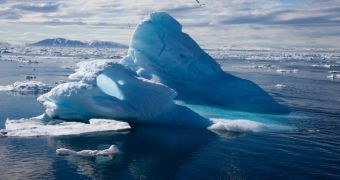Greenpeace members and supporters, together with environmentalists working with other similar organizations, have for some time now been asking that a protected area be established around the North Pole, and that oil companies, together with industrial fishing fleets, be banned from this region.
This demand has until now secured the support of several public figures and celebrities such as Madonna, Ricky Martin, and Paul McCartney.
However, it is only now that the European Parliament has agreed to also back this initiative, so Greenpeace can hope that an Arctic sanctuary will actually be set up around the North Pole in the not so distant future.
Greenpeace says that, this past March 12, the European Parliament passed a resolution asking that a protected area be established in said part of the world sooner rather than later.
In doing so, the Parliament synced its wishes with those of over 5 million people who are all in favor of an Arctic sanctuary, the organization goes on to explain.
“The European Parliament today passed a resolution calling for a protected area around the North Pole which could ban oil companies and industrial fishing fleets from the region,” Greenpeace writes on its website.
“The text echoes the demands of an international campaign which has attracted the support of over five million people including Sir Paul McCartney and US oceanographer Sylvia Earle,” it adds.
Apart from promoting the idea to set up a 2.8 million-square-kilometer (roughly 1.08 million square miles) sanctuary at the North Pole, the European Parliament called for measures to prevent fishing in the Arctic high seas.
It also pointed out the fact that a binding agreement intended to prevent pollution from ships and oil rigs needed be rolled out without delay.
According to the organization, the task of preventing pollution in these pristine waters falls to the Arctic Council, which includes Canada, Denmark, Finland, Iceland, Norway, Russia, Sweden and the United States.
Now that the Parliament has passed this resolution, foreign ministers with the European Union and Foreign Policy Chief Catherine Ashton are expected to be left with no choice except get involved in efforts to halt the industrialization of this region.
“The resolution is expected to push the Arctic more firmly onto the agenda of EU foreign ministers and EU Foreign Policy Chief Catherine Ashton, who have so far been reluctant to speak out against the rapid industrialisation of the region by international oil companies including Shell, BP and Russia’s state owned energy giant Gazprom,” Greenpeace explains.

 14 DAY TRIAL //
14 DAY TRIAL //